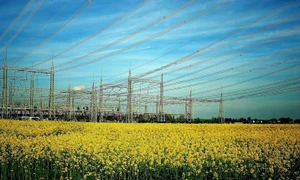
As for renewables, the Apollo program is envisaged to be rolled out with the aim of lowering energy costs for vulnerable consumers and municipalities through self-consumption. It will run in six distinct phases starting with the formation of a citizen energy community by every region in the country, according to the proposed law.
The bill would also expand production curtailments in the distribution grid. So far, they were possible mainly on the transmission grid, as control systems are installed within large renewable energy projects. Now such systems will be added initially to units of over 1 MW in the distribution grid and later on they will be expanded to include plants of over 400 MW.
Producers would have a six-month deadline to make necessary changes, otherwise they would have to pay 25% of their income and receive no compensation from Renewable Energy Sources Operator and Guarantees of Origin (DAPEEP).
The bill includes a requirement for renewable energy projects competing in auctions to be subjected to increased curtailments or install batteries. The provision is subject to approval from the European Commission. The exact level of new curtailments would be specified by the ministry’s workgroup in the coming months. It is expected to reach 40% to 45% of output.
Another change is that feed-in tariffs for small photovoltaics would be ended after May, with the exception of rooftop systems. Investors who sign a contract for a subsidy by the end of April would need to submit a preparedness document by the end of August to retain it. Otherwise they will have to participate in an auction.
Negative price appears for the first time in the wholesale market
Through the proposed changes, the ministry is attempting to update the regulatory framework for renewables so that it reflects the new conditions. So far in 2024, curtailments have increased significantly, along with hours of zero price in the wholesale market.
Near zero prices have become an almost daily phenomenon in April as high temperatures have led to low demand and solar production has increased. It should be noted that on Sunday, April 8, a negative price was recorded for the first time in Greece, of EUR 0,01 per MWh below zero, at 15:00.























